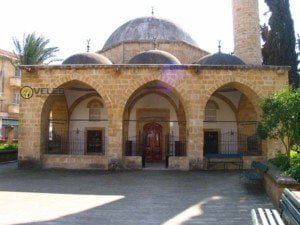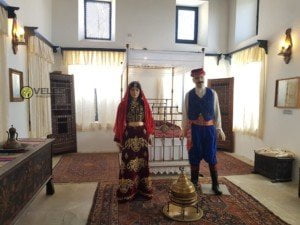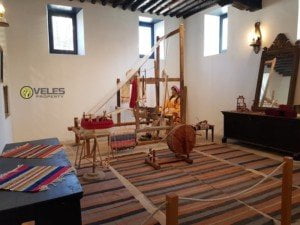Culture of Northern Cyprus: A Thorny Path
The thorny historical fate of Cyprus has determined the fact that Cyprus has found itself at the intersection of different civilizations and cultures. And each of them left its mark on the unique national appearance of this ancient country. In Cyprus, you can see layers of literally all cultures of Europe and Asia, starting from the 9th millennium AD. Remains of ancient Stone Age settlements; temples of the period of Ancient Greece; theaters where the Roman nobility spent time. These monuments of antiquity and antiquity coexist with Byzantine monasteries and temples, castles of crusader knights, and Venetian fortresses. The spires of Gothic cathedrals rise from the island in the same way as the minarets of Turkish mosques.
Culture of Northern Cyprus: Language
The official language in the northern part of the island is Turkish. English is widely spoken as a second language. On road signs, the inscriptions are always written in two languages. Therefore, it is absolutely not difficult to navigate along the route while on the road.
Culture of Northern Cyprus: Religion

The majority of Turkish Cypriots are Muslims. Very few regularly attend the mosque or wear religious clothing. But on the other hand, religious holidays are always welcomed and celebrated with pleasure. Christian worship is allowed, so an increasing number of Europeans are coming to North Cyprus for a wedding ceremony. For this important event, many choose the beautiful old church of St. Andrews. The church is located next to the Kyrenia harbor, which has remained there since colonial times. An Orthodox church was opened in the village of Arapkoy under the patronage of the Association of Orthodox Christians of the TRNC.
Culture of Northern Cyprus: Family Life

For Turkish Cypriots, family life is of great importance, and therefore a large amount of their free time is spent on family holidays, barbecues and, of course, a wedding is considered a big event.
Summer is considered the wedding season here. Wedding ceremonies are held every weekend in all major hotels and special wedding venues. A Cypriot wedding gathers from 500 to 4000 guests. Wedding invitations are distributed to everyone who is at least somewhat familiar with the families of the newlyweds.
At the engagement, the bride often wears a traditional wedding suit. And in the circle of family and close friends, they celebrate their intention to get married. Several years can pass between engagement and marriage. Therefore, the desire to announce the wedding to as many people as possible is understandable.
Traditional Crafts in North Cyprus
Lefkara is a traditional embroidery that dates back to the Venetian period, where intricate, amazingly beautiful elements are depicted on things such as bedspreads, tablecloths, napkins and shawls. It is said that during a visit to Cyprus, Leonardo da Vinci was so impressed by Lefkara that he adopted some elements to decorate the drapery of the altar of the cathedral in Milan. Nowadays, this project is known as “Leonardo da Vinci Design”.

Carpet weaving is another age-old Cypriot tradition and is found mainly in the area of Famagusta (Gazimağusa). Kilims – small rugs – are colorful models that are perfect souvenirs or gifts. Also, wicker baskets and boxes are another form of Cypriot art that is popular among locals and tourists.
Koza (goat) – applications from silkworm cocoons. A traditional type of needlework of Cypriot women. In Cyprus, silkworm cocoons have an amazing golden yellow hue. Cocoons imported from Turkey are white. Combining two colors, craftswomen embroider amazing appliqués on a velvet base. The delicate work of cutting out elements in the form of petals and flowers requires perseverance and great love.
Sela and Sesta (Sela and Sesta) – weaving plates and baskets from reeds. This skill was passed down from generation to generation from mother to daughter. A good bride had to have in her dowry self-woven villages and sisters.
Source: Free Internet
Prepared by: Julia Ozerje
Ask your question directly to Veles experts. For a residence permit +90 (533) 826-04-49, buying or selling real estate +90 (542) 882-84-49, issuing apostilled powers of attorney +90 (542) 879-84-49, translation of documents +90 (533) 840-84-49, obtaining visas to the USA, Canada and other countries +90 (533) 833-33-98 – please contact Veles Property.
Read more articles about North Cyprus here.
Follow the developments in Northern Cyprus in our Telegram and Instagram
Watch all our videos on the YOUTUBE channel VELES


